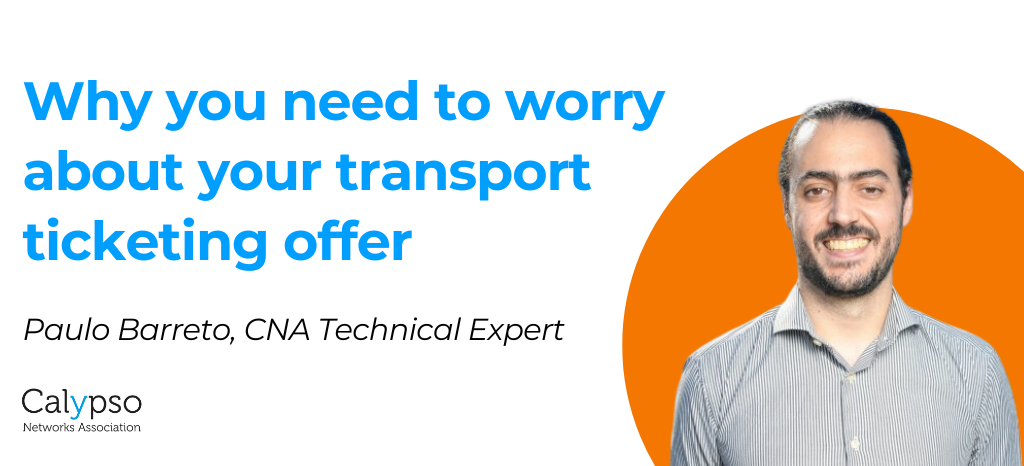
Why you need to worry about your transport ticketing offer
- By Chaix Manon
- In
A transport network is a complex symphony of intertwined systems, from scheduling to staffing, repairs to route planning. To keep services running as passengers expect, those responsible for mass transit must manage multiple roles and responsibilities at once. In this context, delegating your transport ticketing offer to an outside provider that promises a comprehensive solution can sound like one less thing to worry about.
Being able to offload ticketing to an outside provider that promises a comprehensive solution sounds great then, right? One less thing to worry about?
But is ceding control of your system to a third-party the best way to deliver a winning offer?
The less you know and worry about your transport ticketing offer, the less accountable your supplier becomes.
As an operator or authority, you should be worrying about your ticketing offer: is it economical, is it sustainable, is it agile enough to innovate quickly? These are not questions providers prioritise, so it’s incumbent upon you to do so: no-one else will demonstrate such a high level of long-term care.
If you lose focus on your ticketing offer, you grow more dependent on your solution provider. Without in-house expertise to thoroughly consider and challenge them, you risk accepting overpriced proposals, following advice to unnecessarily replace equipment, and allowing integrators to completely own your passenger data and system architecture. It’s a cycle that erodes both your autonomy and your budget.
In-house expertise is a fundamental step to avoiding this trap. With skilled experts on your side of the table, you are empowered to challenge suppliers, resist vendor lock-in, and retain control over your ticketing. In doing so, you can make sure that your relationship is built on mutual trust and a shared goal of delivering state-of the-art ticketing.
In short, you become a better client.
Contrasting Experiences: Lessons from Mexico and Brazil
As an example, let’s compare the contrasting fortunes of Mexico and Brazil. Both faced fragmented ticketing ecosystems that had repeatedly been held back by a combination of short-term political decision-making and rampant fraud. Where they differed though, was how they chose to address it.
In Brazil, the want for a quick fix to gain political favour meant that solutions were often just short-term tonics. Integrators introduced proprietary solutions that allowed them to present selective data to networks that masked issues without ever truly solving the problem, all while demanding repeated investment and creating a cycle of dependence. The fundamental problems remained unsolved.
Mexico City, meanwhile, decided to think long term. It invested in a Calypso system that put ticketing control back in the hands of the operators while simultaneously ensuring that it had a roster of experts that were well trained in understanding the art of ticketing. Not only did this give networks both the data and expertise to find and address fraud, it meant the authority could proactively engage with suppliers with confidence, creating a comprehensive ticketing offer that can continually evolve alongside the needs of its users for years to come.
The golden rules for taking back control
Owning your system is not a burden – it’s an investment. And like any investment, it’s crucial that you take the time to properly establish and nurture it. While doing so, always remember the six golden rules to owning your ticketing system:
- Define your system – Every single transport network is unique. Consider geography, transport modes and most importantly the passengers that your network serves, then build your system rules and requirements to meet them.
- Own the key elements – Make sure the keys, data models and architectures that you rely on are yours to manage and own. Whenever possible base your solutions on Open Source.
- Know your hardware – Ensure that validators and equipment can support open standards like Calypso and do not tie you to one single provider.
- Control the data – Make sure you own your data and that you are in charge of how it is collected and used.
- Think about your contracts – Don’t get tied down by long contracts that limit your agility to upgrade when you want. Make sure they include required service level clauses.
- Collaborate and share knowledge – No network is truly isolated. By exchanging experiences with transport ticketing community peers, operators can learn from shared challenges. This helps networks identify and resist the “cookie-cutter” out-of-the-box solutions that prove so damaging and instead push for innovation.
These tenets are at the heart of Calypso. It’s more than a standard; it’s a fundamental philosophy of openness, ownership, and collaboration. Defined for the ticketing community, by the ticketing community, Calypso ensures operators and authorities can define and develop a solution for their unique needs that can evolve over time free from any vendor lock in.
Additionally, Calypso training programs are designed to give operators the tools and insight to better understand their own systems and help them take an active role in discussions with suppliers to make sure that ticketing systems serve passengers, not suppliers.
Learn more about Calypso training here.


